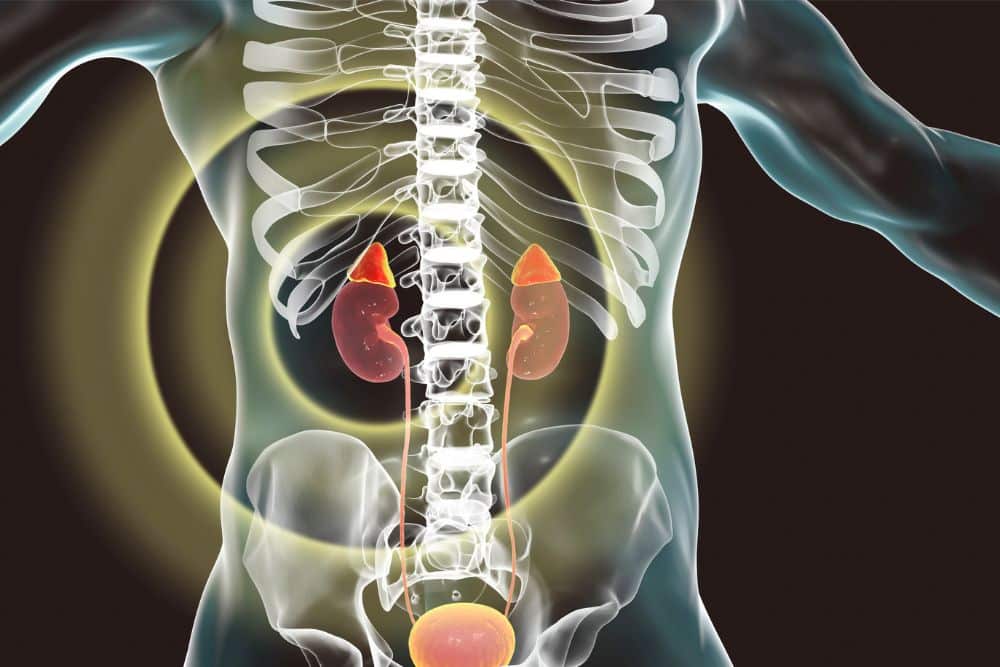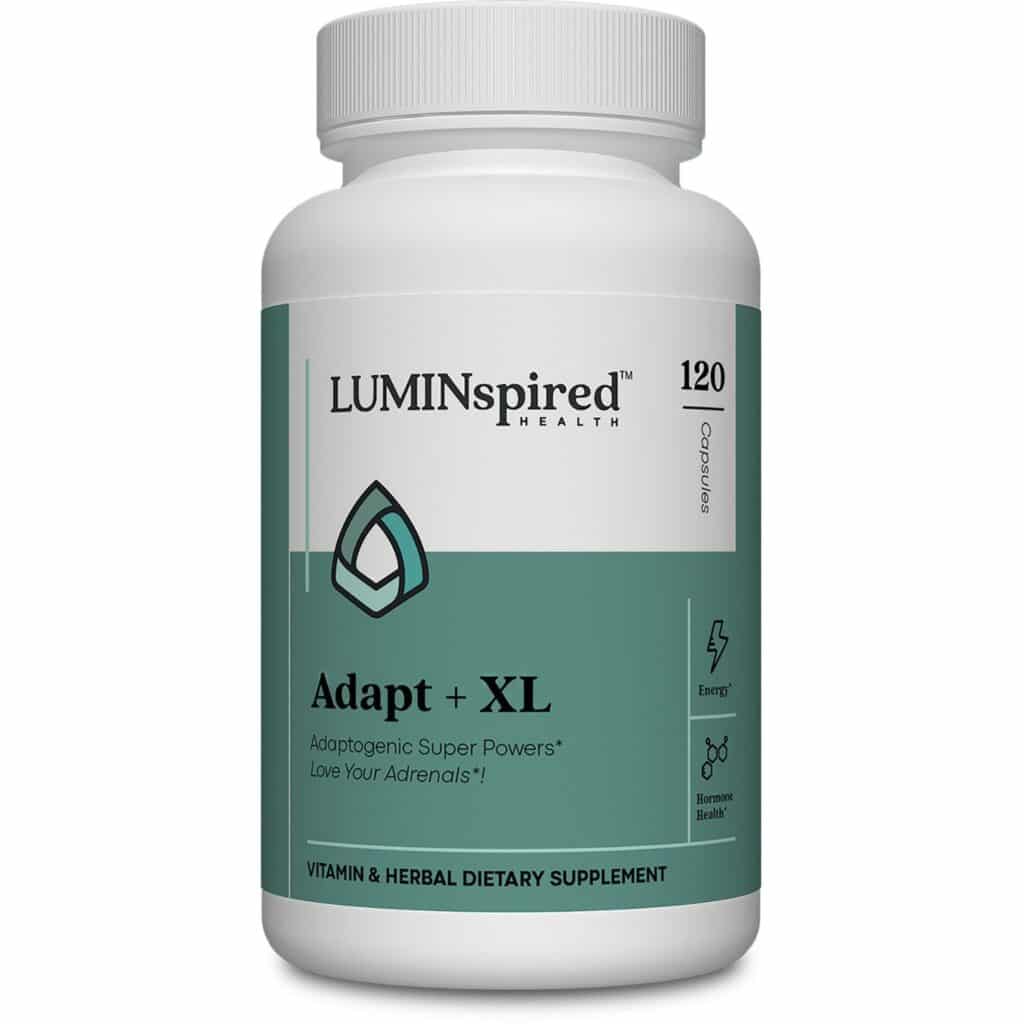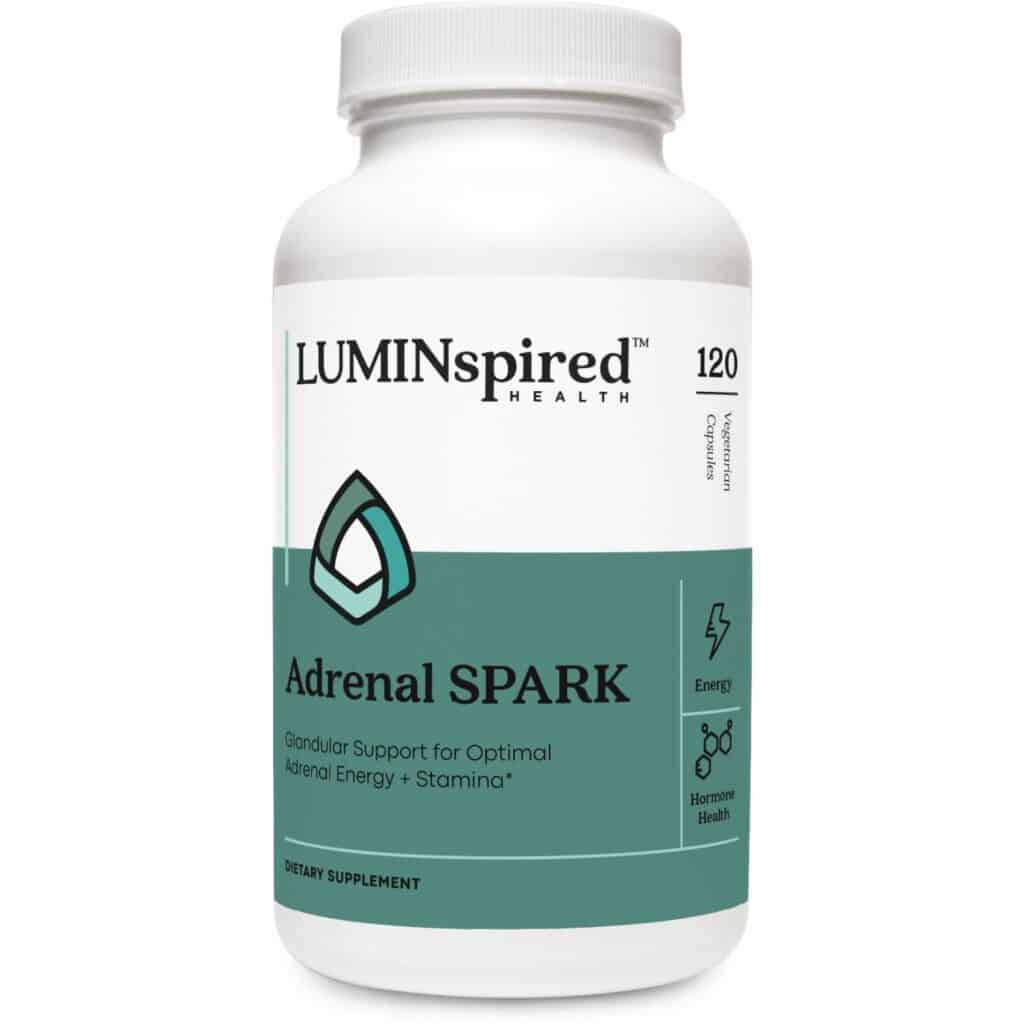Menopause is an inevitable stage in every woman’s life that marks the end of reproductive years. During this time, hormonal fluctuations can lead to a variety of physical and emotional changes. One important aspect of menopause that often goes unnoticed is the impact on adrenal health. Let’s discuss what the adrenals are, how to support them and their role in a better menopausal experience.
Role of the Adrenal Glands
The adrenal glands are triangular shaped glands about the size of a fortune cookie that sit on top of our kidneys. These glands play a crucial role in our overall well-being by producing hormones that regulate various bodily functions, including stress response, metabolism, and immune system support. Think “fight or flight” or “rest and digest.” Adrenal glands are a part of our endocrine system which consist of various glands and tissues. When we are thinking about the adrenal glands and menopause, we are also thinking about our ovaries and thyroid, all part of our endocrine system. Several hormones are produced, which sets a beautiful coordination of functions in motion throughout our body. It is all VERY connected.

During menopause, the drop in estrogen and progesterone sex hormones can lead to symptoms like fatigue, mood swings, hot flashes, sleep disturbances and MANY others. It’s the responsibility of the adrenal glands to produce small amounts of these sex hormones, so these glands are under increased stress during this time.
Adrenal glands also produce a hormone called cortisol, which helps the body cope with stress. Cortisol is important to help control the body’s use of fats, proteins and carbohydrates, suppress inflammation, regulate blood pressure, increase blood sugar and if imbalanced, can decrease bone formation. Cortisol is also heavily involved in our sleep/wake cycle. As menopause brings about various physical and emotional changes, the body may experience increased stress levels therefore affecting our cortisol levels.
Furthermore, adrenal support can also aid in weight management during menopause. Hormonal changes can lead to weight gain, especially around the abdominal area. The adrenal glands + thyroid play a role in metabolism and supporting their function can help maintain a healthy weight during this transitional phase.
Ways to Support your Adrenals During Menopause
There are several ways to provide adrenal support during menopause. Firstly, adopting a healthy lifestyle that includes a balanced diet, regular exercise, and stress management techniques can help support adrenal health. Additionally, certain supplements and herbs have adrenal-supporting properties that are extremely beneficial.
A wonderful option is Adapt +. It provides support to the body when temporarily under stress or feeling energetically spent. This product supports both physical and mental functionality through the use of carefully selected phytonutrients and plant enzymes. Key ingredients include extracts of Panax ginseng, ashwagandha, and holy basil. It also includes high-potency antioxidant vitamin C.

In some cases, it may be helpful to provide adrenal gland replacement such as Adrenal Spark (Formerly named Adrenal Renew). It features a comprehensive blend of nutrients and botanical extracts targeted to support the body’s adaptogenic response to promote optimal energy production, stamina, and the management of everyday stressors. Adrenal glandular tissue, sourced from Argentinian bovine to safeguard purity, rounds out the ingredient profile.

Meditation, stress management, quality sleep, nutrition, minimizing toxins, regular movement and good community are all vital contributors to your adrenal health and there are several blogs we have written to help guide you!
As always, it is important to consult with one of the healthcare providers here at Inspired Health to equip you with a full comprehensive plan unique to you.

Want more Inspired tips?
Be sure to follow us on Instagram, Facebook, and Pinterest.
Also, sign up for our newsletter!
Visit us in-person at Inspired Health, or schedule a TeleHealth appointment!
References
[1] “Function of the adrenal glands.” 2024.
[2] “Adrenal glands.” 2024.
[3] “Endocrine system.” 2024.






